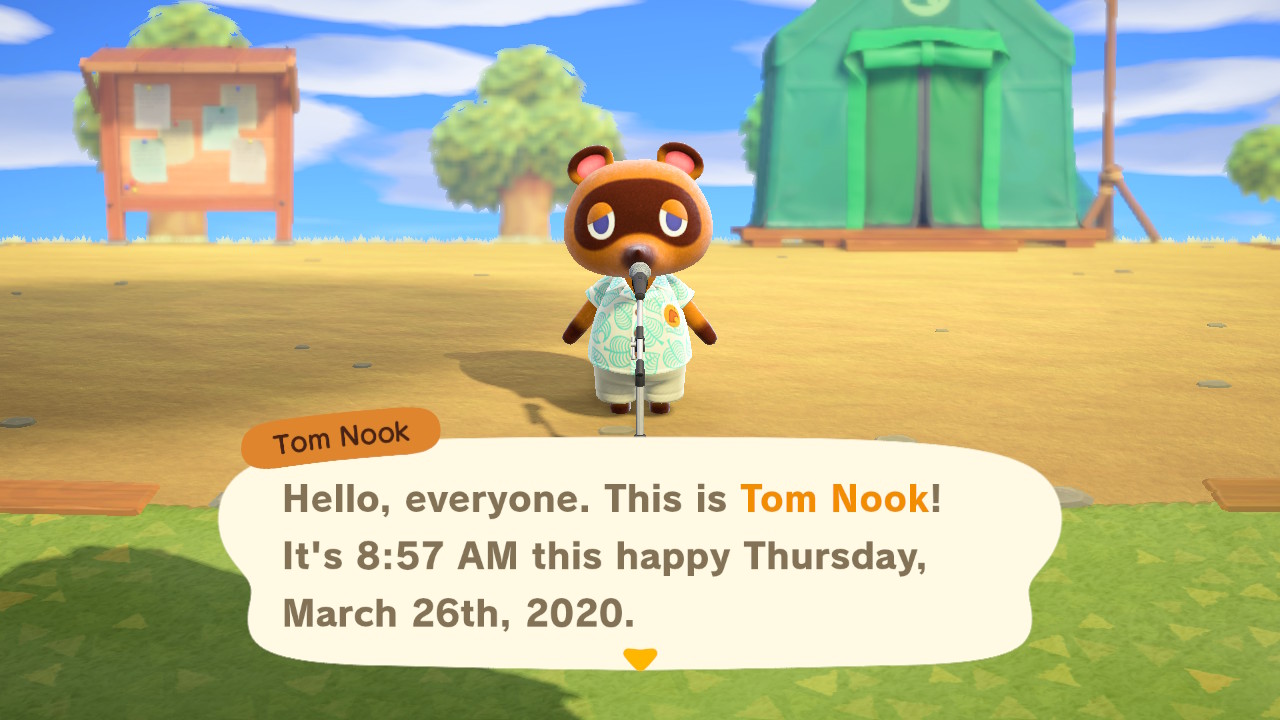Curator's Note

For most of us, the experience of the COVID-19 pandemic has been in front of screens in our homes. Some are working from home, while others are unemployed. Almost all of us are sheltering in their homes under orders by local governments. Stuck inside, people have begun to report their sense of time was slipping, not entirely sure what day it is. Our connection to time via the schedules of work, school, and socializing have been severed.
During this time Nintendo released a long-awaited video game called Animal Crossing: New Horizons. At a time when many people found themselves asked to stay home, playing Animal Crossing is a pleasant escape from the troubling world. The gameplay asks players to collect resources, craft tools, complete projects, and pay off debt to their Racoon landlord on a daily basis. The in-game construction of time follows a real-world clock and seasons. This is perhaps the uniqueness of Animal Crossing. You could play for hours but unless you manually manipulate the internal clock of your Nintendo Switch, at some point in the early stages of the game there will be barriers to proceeding. A workshop or store will not be built until the next day. As a result, you cannot power through in an epic all night gaming session to make it to the next level like in most video games.
As the days blend together during the pandemic for those stuck inside, Animal Crossing offers a schedule and sense of order. Turnips need to be bought on Sunday. Materials need to be collected daily to meet tasks delivered by an in game smart phone. Certain bugs and fish can only be caught during specific times. And debts must be paid.
If the gameplay of Animal Crossing sounds similar to the daily grind of work, that is a conclusion observers of video games have also come to. I found myself waking up and looking forward to tending my virtual island instead of getting ready for “real” work. There is a fanciful escapism in world where value can be created through doing whatever you want. This simulacrum of productive work being so desirable during these times is also a sign that productivity does not need to be connected to profit. It can even be pleasurable when separated from material reward!
Animal Crossing also exposes the social construction of time. We might think of hours, minutes, and daily schedules as natural expressions of time – but these are social impositions and constructions. Mass industrialization led to the standardization of time. In other words, we experience and make sense of time much differently than most humans ever did. Those who experiment with "time jumping" in the game by manipulating the internal clock of the Switch even report it takes the fun out of the game. I have no idea what time will look like post-pandemic, but should we be so quick to rush back to being over-scheduled and the normalization of not enough “hours in the day?”
Comments
Video Games as Markers of Time
It is notable a video game is providing a significant shared media experience for this historical moment. And because it is offering players "a schedule and sense of order" like you state, I think people will also look back on playing this game favorably, and with a lot of nostalgia, because it offered them something reliable and good in a chaotic time. Your piece is a solid reminder that games (video or otherwise) are not only sources of entertainment in difficult times, but often serve as significant memory markers during and after major events.
Add new comment